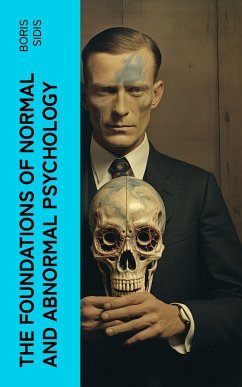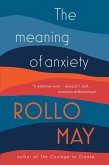In this book, Boris Sidis attempts, in an elementary manner, to formulate the fundamental assumptions and main principles that underpin normal and abnormal psychology. The first section of this book is devoted to deciphering the key concepts and hypotheses that underpin the study of mental phenomena. The second section focuses on Boris Sidis' theory of moment-consciousness, which presents a general view of the nature and development of consciousness, from reflex consciousness to compound reflex and instinctive consciousness and finally to self-consciousness.
Dieser Download kann aus rechtlichen Gründen nur mit Rechnungsadresse in A, B, BG, CY, CZ, D, DK, EW, E, FIN, F, GR, H, IRL, I, LT, L, LR, M, NL, PL, P, R, S, SLO, SK ausgeliefert werden.









